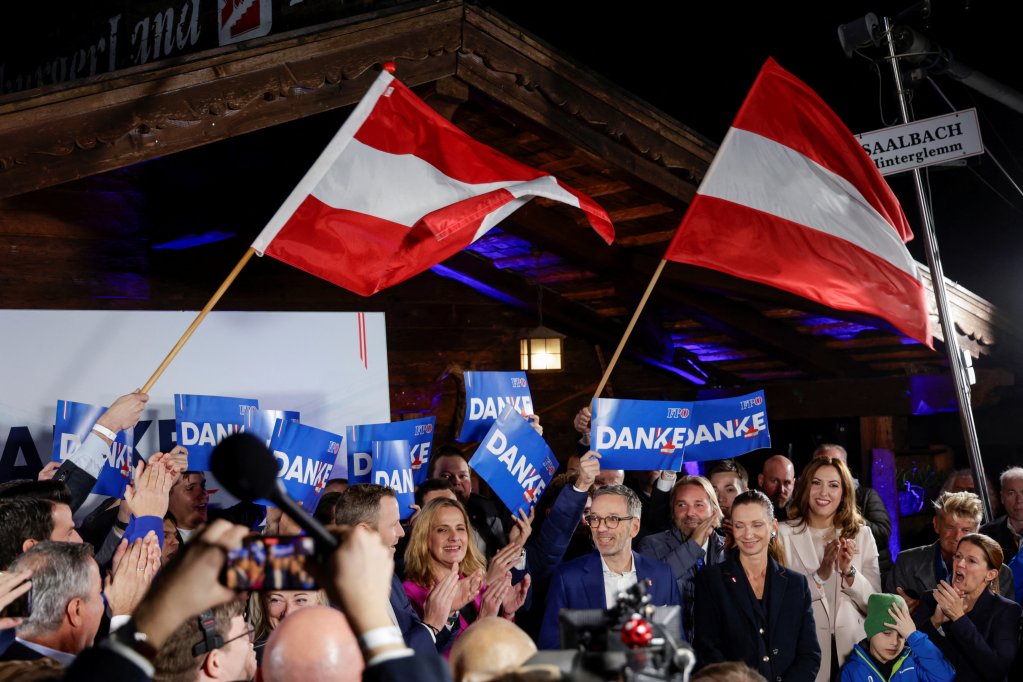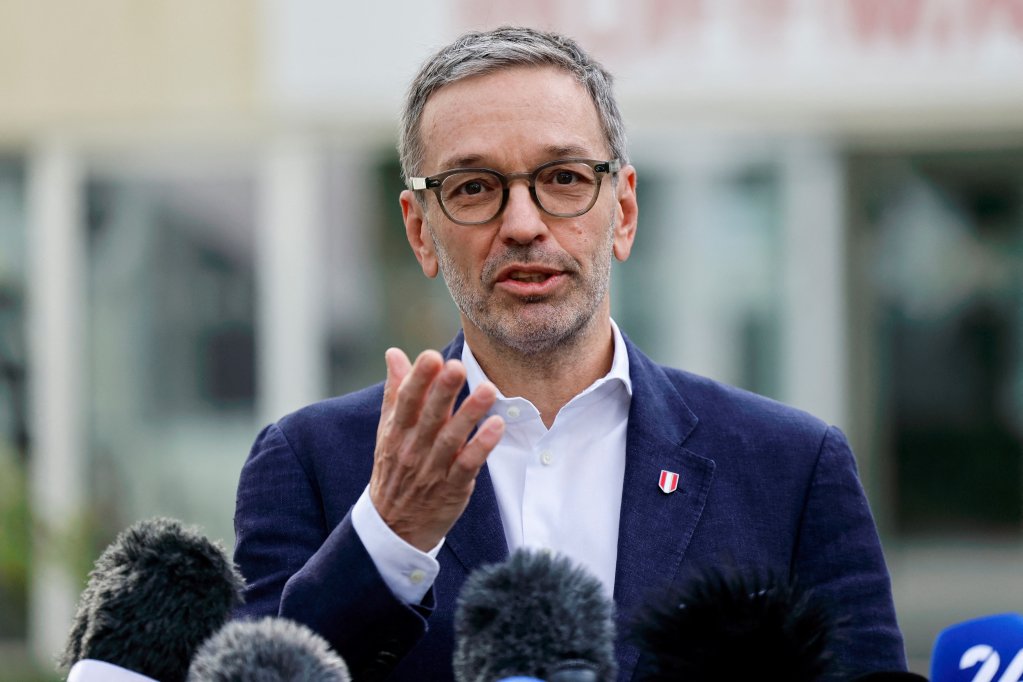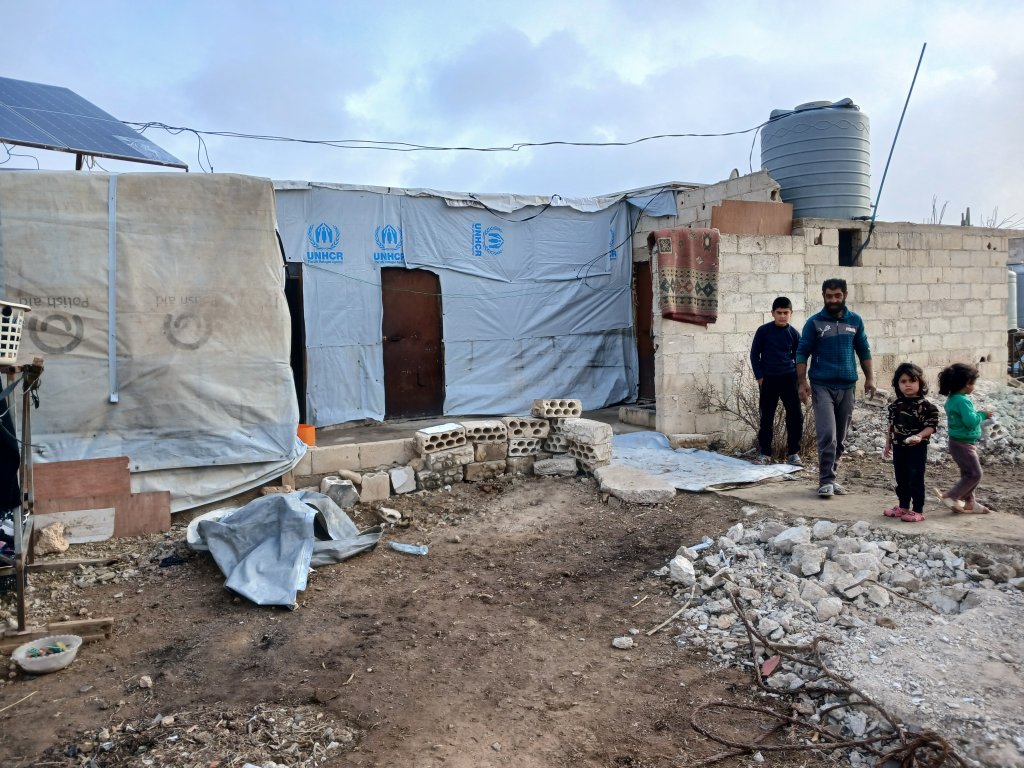Violent attacks linked to immigrants continue to overshadow much of the political debate and landscape in Europe, after several recent attacks in Germany, and now one at the weekend in Austria.
Police in Austria apprehended a 23-year-old Syrian suspect in connection with the stabbing attack on Saturday in the southern Austrian city of Villach, which left a 14-year-old boy dead and five others injured.
Authorities later announced that the suspect is strongly believed to have links to Islamic State (IS) terror group, although it is believed that he acted alone.
Austria's Interior Minister Gerhard Karner told reporters in Villach that this was "an Islamist attack with an IS connection by an attacker who was radicalised within a very short time via the internet."
Police reportedly found IS flags on the walls of the property where the suspect was staying.

However, soon after Karner's announcement, the debate in Austria shifted from the dangers of groups like IS toward the potential repercussions on immigrants as a whole. The Interior Minister announced that he believed that "mass screening [of immigrants]" could be introduced "without cause, as this assassin was also not deemed conspicuous."
While Karner did not highlight any further details, authorities did disclose that the suspect was staying in Austria with a residence permit and no criminal record — without clarifying, however, how long the man had been in the country, or what form of protection status, if any, he might hold.
Austria's far-right calls for 'crackdown on asylum'
Reports of violent crimes like these, where a migrant suspect is involved, are helping fuel support for parties, often on the right of the political spectrum, that are calling for tougher migration policies, increased deportations and attempts to more closely control the borders.
This latest attack in Austria is mirroring what is already going on in its neighbor Germany and in other parts of Europe amid a marked shift to the right across the spectrum.
Leaders on the far-right of the political spectrum are increasingly seen as singling this issue out as the main policy problem both within their own countries and within the European Union as a whole.
Austrian far-right leader Herbert Kickl from the Freedom Party of Austria (FPÖ) called for a major "crackdown on asylum," in the wake of the attack in Villach.
Kickl, whose party won the largest share in the most recent general election four months earlier on an anti-migrant ticket, said that none of the other political parties in the country had succeeded in implementing restrictions on asylum that would prevent or minimize the likelihood of future attacks despite a series of reforms.
'Angry'
The FPÖ politician took to X, writing that he was "angry at those politicians who have allowed stabbings, rapes, gang wars and other capital crimes to become daily occurrences in Austria."
"This is a first-class failure of the system, for which a young man in Villach has now had to pay with his life," Kickl added.
However, these words could also be read as a direct public plea for his party to be given control of the country's Interior Ministry, which in turn is in charge of asylum and migration matters.
Coalition talks between the FPÖ and the broadly conservative People's Party (ÖVP) collapsed twice over the issue of which one of the two parties would be given oversight over the Interior Ministry, if a coalition deal had been signed.
As the constitutional crisis in Austria deepens, the prospect of new elections being held just months following the last vote could further empower the anti-migrant FPÖ, as voters appear unsympathetic towards the idea of a minority government in the country.
Read AlsoAs Europe shifts further right, migrants fear for their futures
'Zero tolerance' rhetoric across all camps
The conservative ÖVP leader Christian Stocker made quite similar comments on X, stressing that Austrians "want to live in a safe" country, and that the Villach attacker "must be brought to justice and be punished with the full force of the law."
The social democratic governor of Carinthia province, where Villach is located, also called for authorities to enact the "harshest consequences" for this "unbelievable atrocity," echoing much of Kickl's rhetoric.
Governor Peter Kaiser from the social democratic SPÖ party said that "(a)nyone who violates [our] rules must face the harshest consequences; they must be put on trial, imprisoned and deported."
"I have always said very clearly and unambiguously: Anyone who lives in Carinthia, in Austria, must respect the law and must adapt to our rules and values."
Kaiser, made a point of thanking a 42-year-old man who helped prevent the attack from claiming more victims by driving towards the suspect; the governor stressed that this man was also a Syrian national.
"This shows how closely terrorist evil but also human good can be united in one and the same nationality," he remarked.

Meanwhile, in a public statement issued on Facebook, the Free Syrian Community of Austria also distanced itself from the attacker and expressed its condolences to the victims' families.
"We all had to flee Syria, our home country, because we were no longer safe there … We are grateful to have found asylum and protection in Austria," the association said.
Read AlsoWhat will happen to Syrian asylum seekers in Germany & Austria?
Plans to send Syrians back after Assad regime falls
Austria currently hosts a large Syrian refugee population of almost 100,000 people. Since the former Syrian leader Bashar Assad's regime fell in December 2024, there have been growing calls in Austria, like in other European countries, to make a change to the policy towards offering Syrian nationals protection.
Alongside several other European countries, the Austrian government suspended the processing of pending asylum requests from Syrians to reassess the situation in the Middle Eastern nation. Furthermore, Austria has also halted family reunions as part of related measures.
The interior ministry issued a statement, saying that is was already preparing "an orderly repatriation and deportation program to Syria" in response to recent events in the country, though there is little known at this point about what this program might entail.

Various human rights organizations, including the UNHCR and other UN bodies, have however in recent weeks criticized such motions and plans to send Syrians back to their homeland, stressing that it was too soon to judge if the situation on the ground could be considered sustainably safe.
Read AlsoAn uncertain future: Returning home to Syria or retaining refugee status?
Attack in Germany ahead of voting
Meanwhile, a two-year-old girl and her mother were also killed in a separate attack in neighboring Germany this weekend after a car rammed a labor union demonstration in the Bavarian city of Munich. At least 37 others were wounded.
A 24-year-old asylum seeker from Afghanistan was arrested, and German police believe he may have also had Islamist motives for the attack.
With elections less than a week away, migration has also become the main issue on the ballot in Germany following five attacks carried out by foreign nationals in Germany in the past nine months.
Incumbent German Chancellor Olaf Scholz first expressed his condolences on X for the victims of the Munich attack but within a day also issued a statement highlighting that under his leadership, Germany had "succeeded in reducing irregular migration and significantly increasing the number of returns. We must continue on this path consistently," he said.
Scholz meanwhile also highlighted in the same message that "at the same time, [we must] protect those who live in our country with a history of migration and contribute [to society] here."
With the narrative of violent attacks increasingly being used as a political argument to further tighten immigration controls, strengthen borders, and enact increasingly narrow and limited immigration laws, there is also more and more disinformation on these issues being spread on social media channels.
Read AlsoHow Europe's far right is changing EU asylum policy
with AP, AFP
